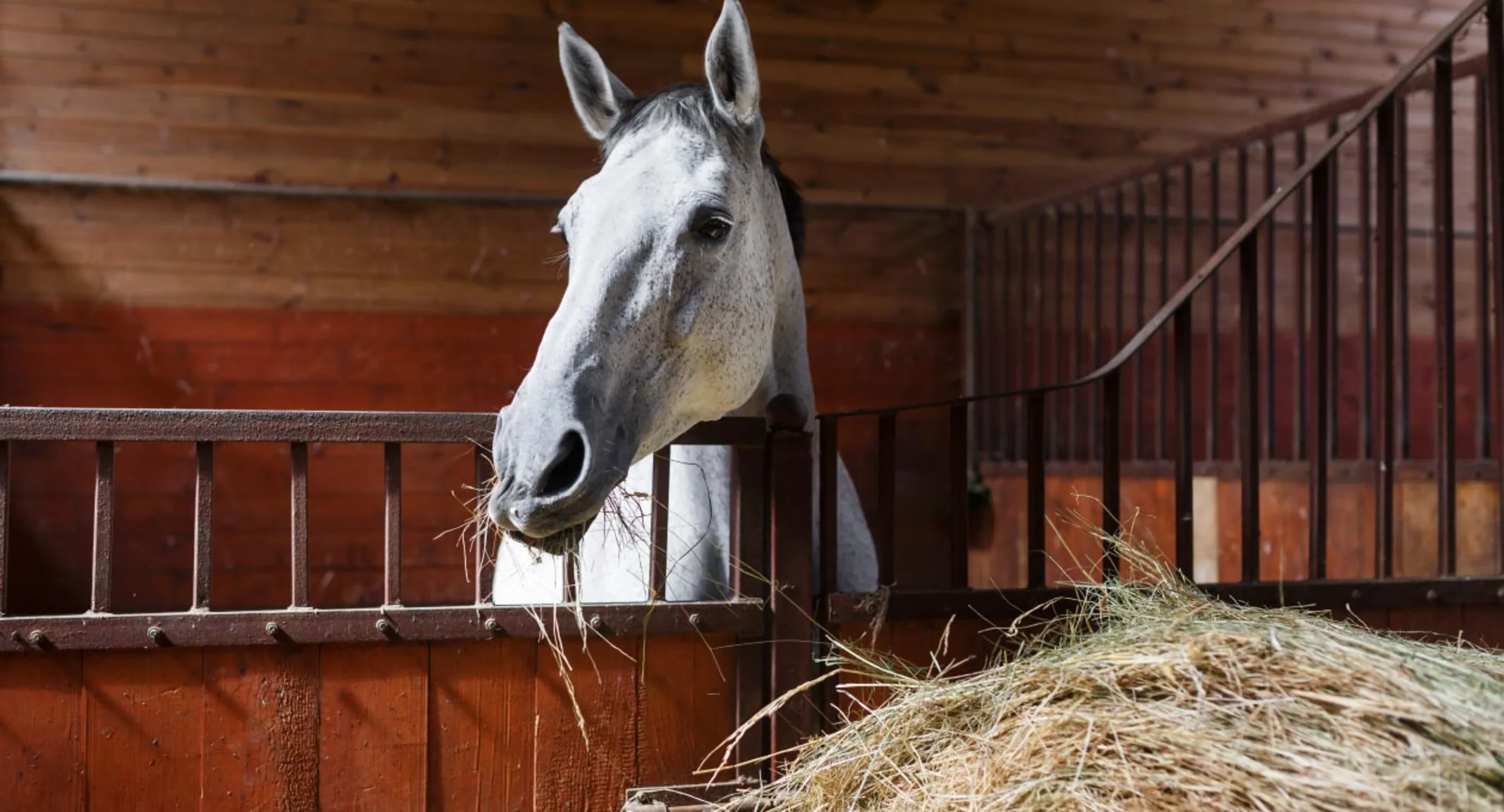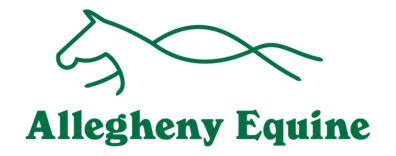Senior Horse Considerations & Recommendations
Equine

Senior Horse Considerations and Recommendations
At Allegheny Equine we are dedicated to providing thorough, high-quality, and compassionate care to your horse at every stage of life. Geriatric or senior horses require some special considerations regarding routine care. Here are some of the most important things to discuss with your veterinarian when visiting your horses 20 years of age and older.
Metabolic testing: As horses age, they become pre-disposed to a disease called PPID (Cushing’s). This is a disease process that affects the portion of the brain (pituitary gland) responsible for controlling the amount of steroid hormone released in the body. This can cause symptoms such as lethargy, muscle and weight loss, bot-bellied appearance slowed wound healing, and a decrease in ligament/tendon strength.
Testing for Cushing’s disease is accomplished by bloodwork which can be completed on the farm. Depending on your horse’s particular case either a baseline ACTH (single blood sample) or a TRH stimulation (2 blood samples timed 10 minutes apart) test can be performed. Please discuss with your veterinarian to decide if Cushing’s testing is indicated and which test is best for your horse.
Management of Cushing’s disease is an oral medication called Prascend (Pergolide). This is a once-daily oral medication to help slow the progression and mitigate some of the symptoms of Cushing’s disease.
Dental Care: As your horse ages the teeth in his or her mouth start to wear down. The roots which have been consistently erupting throughout their lives become short, and they may start to lose teeth. Some older horses require dental care more frequently (every 6 months) to correct or prevent issues with aging teeth. Other older horses do fine with their annual dental exam. The best way to assess the health of your older horse’s mouth is to have your veterinarian take a look inside every 6-12 months.
Things to suggest your horse may be having a dental issue are:
Foul smell from the mouth
Thick, white, foul-smelling nasal discharge from 1 nostril
Difficulty eating or dropping feed
Quidding (balling up) hay
Weight loss - As older horses start to lose teeth, or need them removed, dietary adjustments may also need to be made.
Diet: When feeding an older horse, needs are very individualized. Some older horses never need their dietary regime changed, others may need mild tweaks to keep their coat shiny and weight-healthy, others still may need significant dietary modifications to keep them healthy and happy.
An older horse with healthy teeth, healthy weight, and no confounding medical conditions should do just fine being fed as he or she was throughout their adult life.
If your older horse has dental issues: These horses may need to have a soaked senior feed to be able to extract the nutrients they need to stay healthy. Senior feeds are designed to be easily digestible, replace hay in horses that can no longer chew it, and be easily soaked into an oatmeal consistency. Not all horses with dental issues need to be taken completely off of hay. Some do well with a chopped hay or soaked hay cube/pellet. Others may need to consider a complete senior feed.
If your horse doesn’t have dental problems but is starting to become skinny: Sometimes older horses cannot absorb nutrients in their gut as well as they once did. These horses often need more calories and more easily digestible feedstuffs to maintain their weight. This can come in the form of senior feeds fed in addition to hay, fat and/or protein supplements, and other forage alternatives that may be more easily digestible (chopped, soaked cubed, or pelleted).
Long-Term Medication Use: A good number of our older horses are on at least one long-term medication. Depending on what that medication may be routine bloodwork (CBC/Chemistry/Electrolyte Panel) may be indicated every 6-12 months. This helps us to ensure your horse is able to safely receive the medications he or she is taking and can help us catch small issues before they become large problems.
All of these recommendations are STRONGLY case specific, so please use them as a guideline when discussing your geriatric horse with your veterinarian to decide which options are best for your horse!
Thank you for continuing to entrust Allegheny Equine with your horses’ care!
